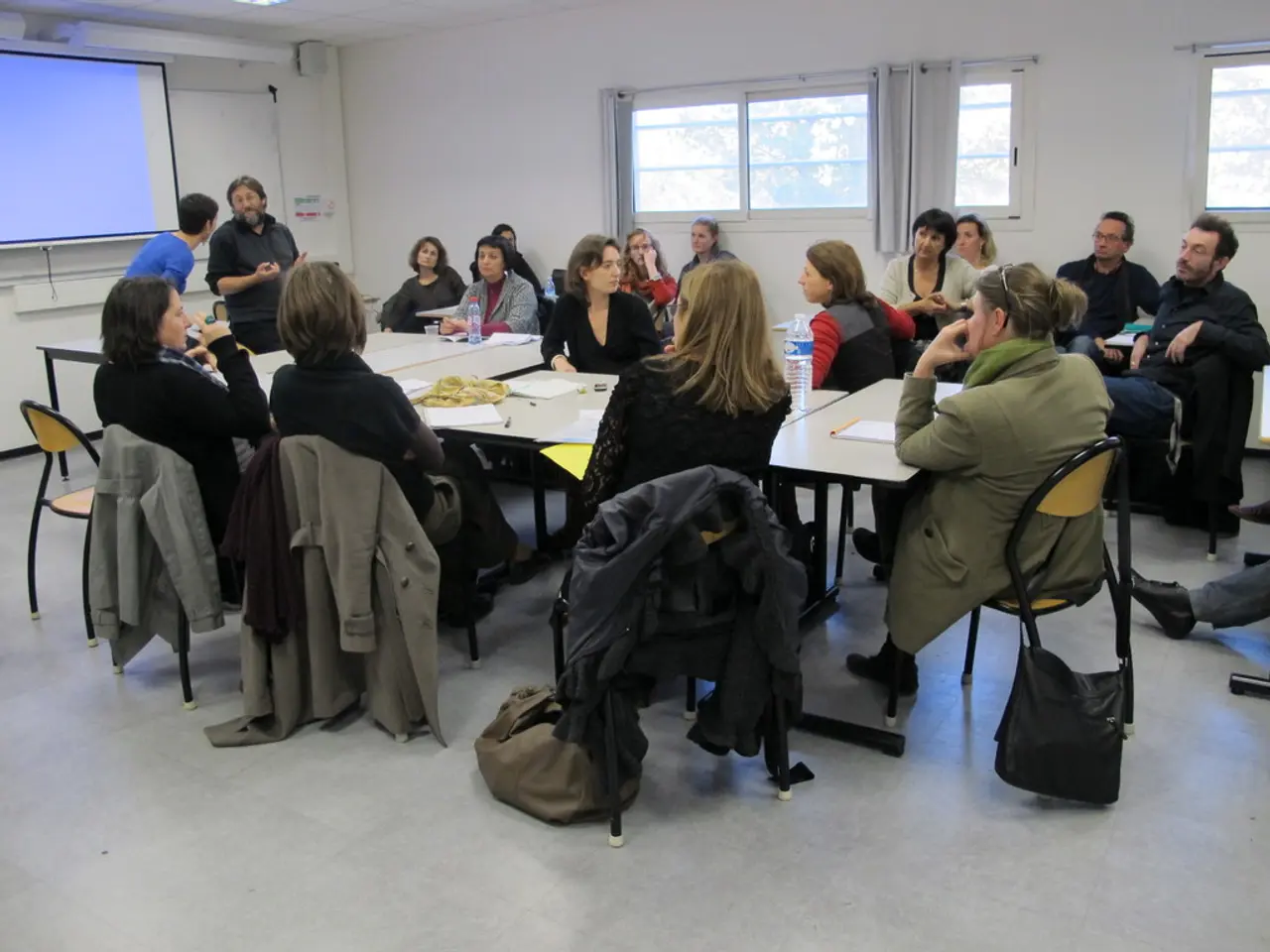Dispute Resolution Techniques: 7 Strategies to Cool Down Tensions
Life, at times, can be a rollercoaster ride, and one of the inevitable curves we often encounter is conflict. Conflict arises when one or more parties involved feel the opposition is unacceptable, leading to strong clashes between individuals or even groups. Fortunately, there are strategies to help de-escalate and resolve conflicts effectively.
Dr. Brooke Keels, a licensed professional counselor, suggests practicing mindfulness as a key tool for conflict de-escalation. Mindfulness is a state of in-the-moment awareness that promotes mind-body alignment. By staying aware of thoughts, feelings, and reactions, we can respond rather than react, fostering a calmer and more effective approach to conflict.
Another recommendation from Dr. Keels is to take a few deep breaths before responding during conflict. This simple act can help calm down and centre oneself, preventing emotional outbursts and promoting clearer thinking.
Asserting personal boundaries is also crucial during conflict. If someone is crossing into territory you're not comfortable with, it's OK to clarify and uphold those boundaries. Assertions like "I won't tolerate being called names. If you continue to speak that way, I'll leave and come back when we can talk this through with a higher level of mutual respect" can be used to set boundaries effectively.
Nonverbal communication, including body language and tone, can significantly impact the intensity of a conflict. Maintaining an open posture and using a calm and neutral tone of voice can help de-escalate a conflict. On the other hand, crossed arms, aggressive gestures, and accusatory tones can escalate the situation.
Active listening is another essential skill for conflict resolution. Listening to the other person's perspective without interrupting or getting defensive can help de-escalate a conflict and foster understanding.
Having an impartial mediator, such as a mutual friend, family member, or professional therapist, can also be beneficial. They can help facilitate communication and promote a more productive conversation.
Dr. Michael Kane, a board-certified psychiatrist, recommends shifting the focus from winning to finding a solution during conflicts. This mindset can help foster a more collaborative and productive discussion.
Taking a break from a conflict can also help clear your thoughts and decide the best path forward. It's important to be clear to the other person that you are taking a break and will return when calm and ready.
Learning conflict resolution skills can help maintain healthy relationships and prevent them from deteriorating beyond repair. Moreover, prioritizing your personal well-being and inner peace is essential during conflict. Consider if engaging is really worth it and if the conflict is worth your energy and peace of mind.
Conflict resolution promotes the establishment of deeper, meaningful relationships by allowing for respectful engagement and the promotion of trust. By employing these strategies, we can navigate conflicts more effectively, fostering a more harmonious and understanding world.
Read also:
- Peptide YY (PYY): Exploring its Role in Appetite Suppression, Intestinal Health, and Cognitive Links
- Toddler Health: Rotavirus Signs, Origins, and Potential Complications
- Digestive issues and heart discomfort: Root causes and associated health conditions
- House Infernos: Deadly Hazards Surpassing the Flames







